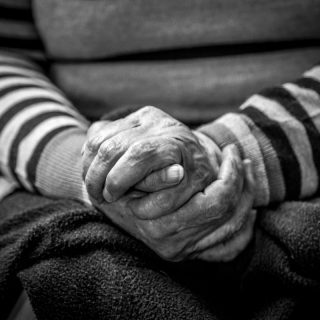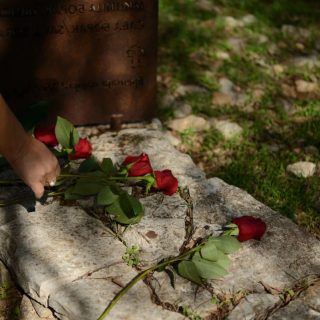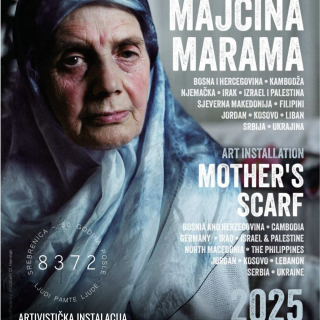The 2001 armed conflict in the Republic of Macedonia – Republic of North Macedonia as of 2019 – between the state security forces and the ethnic Albanian insurgents brought the state to the verge of a full-fledged civil war and it is nowadays viewed as the last violent escalation pertaining to the Yugoslav Wars of the 1990s. The seven months of hostilities in Macedonia, from late January to August 2001, resulted in more than 200 casualties, approximately 90 civil victims, and 170,000 internally displaced persons and refugees. The conflict hit the Macedonian society by surprise, having in mind the relatively peaceful departure of the Yugoslav Army from the state territory in the early 1990s and the state’s cooperation with the international community’s peacekeeping missions in the course of the 1990s. The violence was settled with the so-called Ohrid Framework Agreement (OFA), signed on 13th August 2001 by the leaders of the largest parliamentary parties in the state and brokered by the foreign diplomats. The OFA was not a typical ceasefire agreement; however, it paved the way for a political decentralization of the post-Yugoslav Macedonia, thus allowing for a better representation of the ethnic minorities in the state apparatus.
At the 20th anniversary of the OFA, we, together with Prof. Lidija Georgieva from the Skopje University, noted that the dominant way of evoking the interethnic relations in post-OFA Macedonia is by referencing the various episodes of tensions and violence between the different ethnic communities populating the state. This, as many before us neatly observed, has much to do with the political offer developed in the immediate aftermath of the conflict, as it stimulated two separate and mutually exclusive truths and sidetracked all the attempts to openly discuss the violence, develop transitional justice mechanisms, and establish facts about what had happened in 2001. The model centered on the two- and the two largest ethnic communities only heretofore metastasized, for instance, into the culture and cultural politics, history writing and history education, and especially into the politics of memory and public commemorations. Most recently, for instance, the OFA was blended in the narrative against the two bilateral agreements involving North Macedonia, that is, the one with Bulgaria (2017) and the other with Greece (2018), as a document which helped redefining the state’s sovereignty under coercion. This, in turn, reinforces the discourse, which is somewhat dominant among the Macedonian community and championed by the political right-wing, that problematizes OFA’s prehistory, stipulations, and implementations, while obfuscating its merits.
In this very context, we indicated that the commemorative events related to the 2001 are frequently the major triggers for those exclusivist public discourses. Although the commemorative events mostly recreated and relegitimized the above bicentric pattern, they were, and still are, differing in terms of spatial distribution, levels of formality, organization, agendas and goals, among the other things. Therefore, the initial goal of the research project that we launched in 2001, with the support of the Skopje-office of the Friedrich-Ebert-Stiftung was to grasp the very nuances of the commemorative events pertaining to the 2001 conflict in Macedonia and track down their actors and their agendas as pushed through the memory events in the focus. The later was much inspired by the recent scholarship on memory actors and memory communities, part of the memory studies’ turn to actor-centered studies of politics, political actors, and their strategies. The project hence commenced with a comprehensive review of the existing research and two expert workshops with domestic and international scholars and practitioners. We then proceeded with identifying the sources, which in our case were three types of publicly available materials: newspapers and online media outlets, municipal outlets, and published oral history interviews. This choice was informed by the ongoing COVID-19 pandemics at that point and the public health directives. Albeit they did not limit the scope of the data-gathering, they made a fieldwork research virtually impossible, for instance. Therefore, the data was gathered online and in local libraries by a team of three coordinators and three younger researchers of ethnic Macedonian and Albanian origins.
We thereby developed a coding system and managed to create a dataset of approximately 300 units related to various references of commemorative events: be it, for instance, formal or informal commemorations, placements of memorial objects, or state-sponsored ceremonies in a time span of two decades, from 2001 to 2021. These units were categorized by date, location, and the type of the event, as well as by a set of categories which involved certain interpretative observations: such as the message or tone of the event or the speaker (in the context of the conflict or the OFA), the main actors of the commemorations, the types of victims who are commemorated etc. Albeit the guiding principle was to be as encompassing as possible, this model and research methodology left several aspects uncovered, such as data which were unable to obtain through our sources (e.g. gender aspects) or data which we did not focus on during this research project (e.g. social media and visual data of commemorations). The metadata helped us reveal the developments, processes, and changes of particular events in a given temporal scope, and therefore provided a solid set of empirical data for interpreting the main currents and tracing the eventual patterns.
Based on the above units, we selected 135 of them which we further on presented as an online interactive map, which had its premiere on the 20th anniversary of the signing of the OFA. The selection covered all the noted commemorations in terms of locations, focusing on the first ever recorded commemorative events in that very location. The rationale behind the online map was to assist the better understanding of the memory dynamics related to the 2001 by expert and non-expert audiences, while the materials were offered in three languages: Macedonian, Albanian, and English. Our interpretations, which were also provided at the webpage, alongside the different options of categorization and analysis (such as, for instance, the contextual features for each of the surveyed years), were aimed at contributing to a more comprehensive debate on the topic. Finally, we ended up the project with a compilation of a volume containing three studies discussing some of the peculiar national struggles with memory and memory politics in the post-Yugoslav context, as well as four interviews with four experts working on different aspects of the memory of 2001 in North Macedonia. The final chapter of the volume brought a theoretical and methodological review of the Vera and Donald Blinken Open Society Archive’s Yugoslavia Archive Project, that although considerably more far-fetching, served as our inspiration for the work on a digital memory platform.




